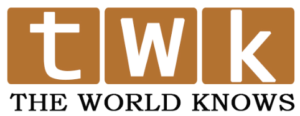A successful healthcare system relies strongly on the relationship between patient and doctor. Almost all businesses have now shifted to digital, healthcare organizations and medical practitioners can make use of CRM to grow their business and to enhance that relationship and their patient’s satisfaction.
What is CRM Healthcare Software
Well, let’s start with the word CRM, which is an abbreviation for Customer Relationship Management. It’s as simple to understand as its full form is. Now, Healthcare CRM is a type of software introduced to unify medical teams to track and log patients and their information. For instance, within your CRM software would be all the information on each patient, including their medical history, date of last and upcoming appointments, and medical bills history ( paid and unpaid ).
With healthcare CRM, organizations have an online portal for scheduling and managing their patients. CRM system can log:
- Contact Information
- Contact History ( numbers, calls, emails, SMS )
- Content Forms ( patient Forms, patient intake )
- Invoice and Insurance History
- Upcoming Event Reminders
- Patient History (allergies, whitecoat syndrome, phobia, height, weight, emergency contact )
Storing information like this and being able to access it at your fingertips is not an easy task. Beyond easy access to patient details, CRMs come with communication tools – email, SMS, and phone that allow health organizations to put the bulk of data entry and marketing on autopilot. This gives healthcare professionals more time to spend with the patients and build relationships.
The different types of CRM depend upon where they will be used in the medical sector. Although we have established the goal of using CRM, these solutions can undertake many roles – business data, analytics, operational support, and the list goes on. Let’s equate CRM into three main categories.
Collaborative
As the name indicates, Collaborative types of CRMs foster lasting collaboration for healthcare organizations. It’s more helpful for large corporations managing multiple divisions and various operations. Lasting communication with customers is established through phone calls, emails, festive greetings, newsletters, messaging, new development updates, and so forth. Subsequently, the data collected from these communications is analyzed by the collaborative CRM to grasp the nature of clients.
Analytical
Analytical CRM collects the customer’s data and stores it for future analysis. Customers tend to respond more positively when they receive specialized care and treatment. Based on their demographic information, medical history, and family medical history, it’s possible to offer a different aspect to each patient.
Operational
Activities like lead generation, conversion, marketing campaigns, pre-sales, and workflows can be handled by Operational CRM. An operational CRM helps in automating many of these activities and empowering teams to achieve more by saving time and resources. Some of the quality CRMs in general terms are:
- Hubspot
- Salesforce
- Nimble
- Oracle
- Pipedrive
Challenges of Using a Healthcare CRM Software
Mid-market and low-budget users are often tasked with implementing CRM solutions on their own. It’s reasonable to face challenges during the implementation. If you’re wondering what challenges a company encounters that wants to implement CRM to grow their business and how to overcome such challenges, keep reading on.
Cost
Cost is one of the consequential challenges that healthcare organizations encounter when adapting CRM solutions. If done hastily, it could turn into a pricey affair. All this time when you invest in healthcare CRM, it entails additional costs for training and maintenance. To manage your expenses, the ideal process is to decide first why you need a CRM solution, how many clients you have, is your team ready to learn and make this transition. Only then it will give a clear view of how much spending you need to do.
Choosing the Right Software
Choosing the right CRM solution is half the battle won. CRM solution challenges are not limited to technology and managing issues. Depending on your company’s workflow it should be the first thing to decide on the CRM provider. It could turn into one of the most critical challenges to overcome if you choose the wrong CRM. It’s also vital to consider whether the chosen CRMs’ functionality is supported by all system requirements or not. Create a dedicated team to learn and perform CRM tasks so you can get a clear grasp of which development type is ideal for you. Don’t rush into deciding, think thoroughly, and don’t get caught by clever marketing tactics.
Managing Integration
Managing integrations with CRM systems is at the top of the priority list in every organization. We understand that some of you are concerned about if the CRM implementations offer integrated functionality or not. As a result, organizations think it could create gaps in collaboration with ticketing, marketing, lead generation, communication, and other crucial business functions.
User Acceptance
Possibly, you would think that we have listed all the challenges one could face in CRM implementation. When everything is related to customers how is it possible to end the topic without even mentioning the user’s perspective?
Using the technology can be simple but out of all the CRM problems organizations face is the people. Including your users and the team as well. Your users who are accustomed to traditional systems will resist the changes. Your team may not even want to learn and switch to the new solutions at all. It could turn differently if you try and explain why CRM solutions are necessary for the growth of the team and clients.
Why Pediatricians Need CRM to Grow Their Business
In a clinic or personal, a pediatrician’s profit margin largely depends on the patients. Pediatricians can improve profit results by capitalizing on the potential of CRM. By using CRM solutions you can measure the impact of each marketing initiative. Healthcare CRM is not only advantageous for your patients, but it can also do wonders for doctors, nurses, receptionists, and other healthcare employees in the organization. With that saying let’s look into some of the advantages of using a CRM to grow a pediatrician’s business.
Reports & Dashboards
As we discussed already in the analytical section of CRM, it stores patients’ data for future communication so that it is readily available to schedule and track patient appointments. Healthcare CRM software provides dashboards and reporting tools to follow patient statics and health issues. We can formulate the reporting module of the CRM in a way to segment the patient list to analyze and then give them suggestions. Moreover, reports and dashboard tools help in generating insights into the performance and reduce bottlenecks by calculating specific metrics – patient retention rate, length of stay, suggested therapy sessions, and others.
Marketing Campaign
The healthcare industry has no shortage of consumers. Of course! Education and Medical are the two only industries that can never slow down. But no one will know you if you don’t have an online presence with your name and position and achievements listed there. Using CRM is like having a whole marketing agency with you. Since CRM already has all the details about your business it knows who your patients are, what they need, and what type of services and quality they’re looking for. The first line of marketing should start with you, your teammates, family, and friends. If your team is not in love with your ideas and products, you will have a hard time persuading the world.
The second step in marketing and promotion would be your existing customers. Make sure you have a workflow for congratulating kids and parents on their special days – birthdays, soccer matches, first day at school, and send them health-minded educational content. And by using CRM all these are just one click away tricks.
And finally, the third one would be the promotion for new clients and grappling with your competitors. Do you refer your patients to your suggested tried and tested chiropractor for sports injuries and joint issues? Keep in touch, make sure they cross-refer you.
Data Security
Your patient’s personal information should always be confidential unless you’re ready to handle a flood of lawsuits. Ordinarily, no one in medical organizations breaches sensitive data intentionally. The fault lies in outdated data management tools. Almost all CRM tools come with cloud storage and excellent data protection. They also provide additional features with higher plans for you to enhance the data security of the patients. Don’t forget to double-check the security certification while deciding on a CRM solution for your business.
Automate the Bookings
There are a significant number of processes that should be completed on a daily basis. Filling out forms, sending reminders, reporting, appointments, patient notes, and prescribed medications. All these are redundant tasks that involve specific numbers of actions that can be performed by automation saving time and staff. If your healthcare organization’s staff is growing, automated calendars are a must.
Speaking of calendar management, have you checked Picktime, a free online appointment scheduling software for pediatricians? Sync your Google, Outlook, or Office365 calendar with Picktime, and never miss any patient. Since we’re on the subject of scheduling, you probably see hundreds of patients every day with so many new people to cater to every day, Picktime not only schedules appointments for your patients it also helps in managing your staff.
Picktime provides a personalized booking page for every business at multiple locations and 24 hours email customer support. Not only that you can generate comprehensive reports on your staff, revenue, and daily appointments. Keep track of your cash flow and invoices with Picktime’s payment and invoice generation feature. Still not convinced? Sign up for free today!
Enhanced Patient Management Process (Complete Patient Overview)
Make your care decisions based on your patient’s most critical task of the day. With healthcare CRM solutions create a rich, contextual patient profile, integrate patient data from the electronic health record, and suggest medications based on their current conditions. As enlightened earlier, each patient will have a separate profile with all their information, CRM automatically updates records in real time so that medical staff can be sure that they’re working with the real updated data. For pediatricians, a CRM costs very less than traditional medical solutions.
A healthcare CRM is a resourceful system that acts as a medical report portal, statistical analysis, marketing system, and patient records tailored specially for your healthcare care with an enhanced experience and reduced waiting time. Almost every industry has been investing in CRM for their development then why not pediatricians use CRM to grow their business?











Excellent article! We will be linking to this particularly great article on our website. Keep up the good writing.
Some really excellent info I look forward to the continuation.
This post post made me think. I will write something about this on my blog. Have a nice day!!
I very delighted to find this internet site on bing just what I was searching for as well saved to fav
Comments are closed.